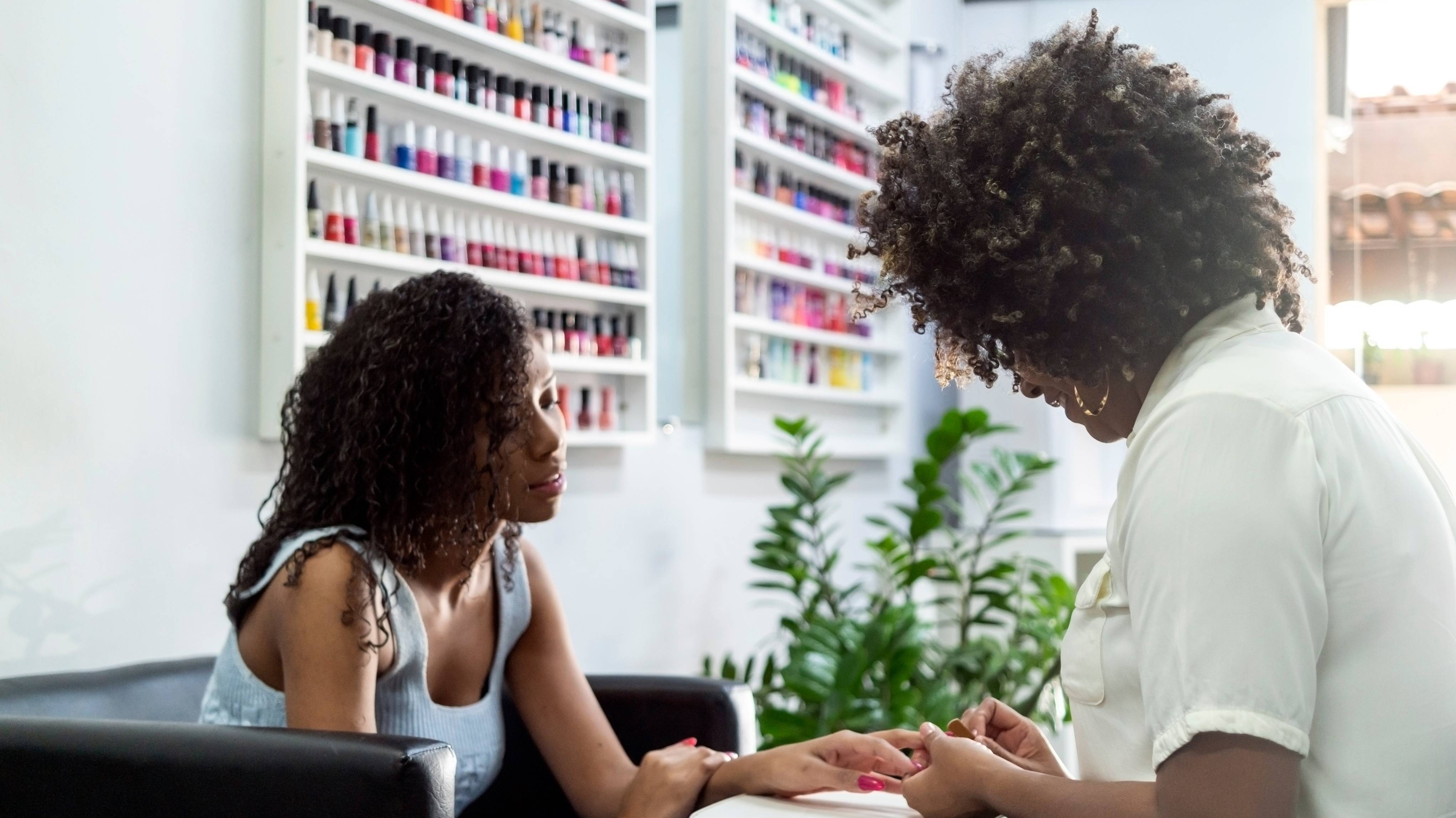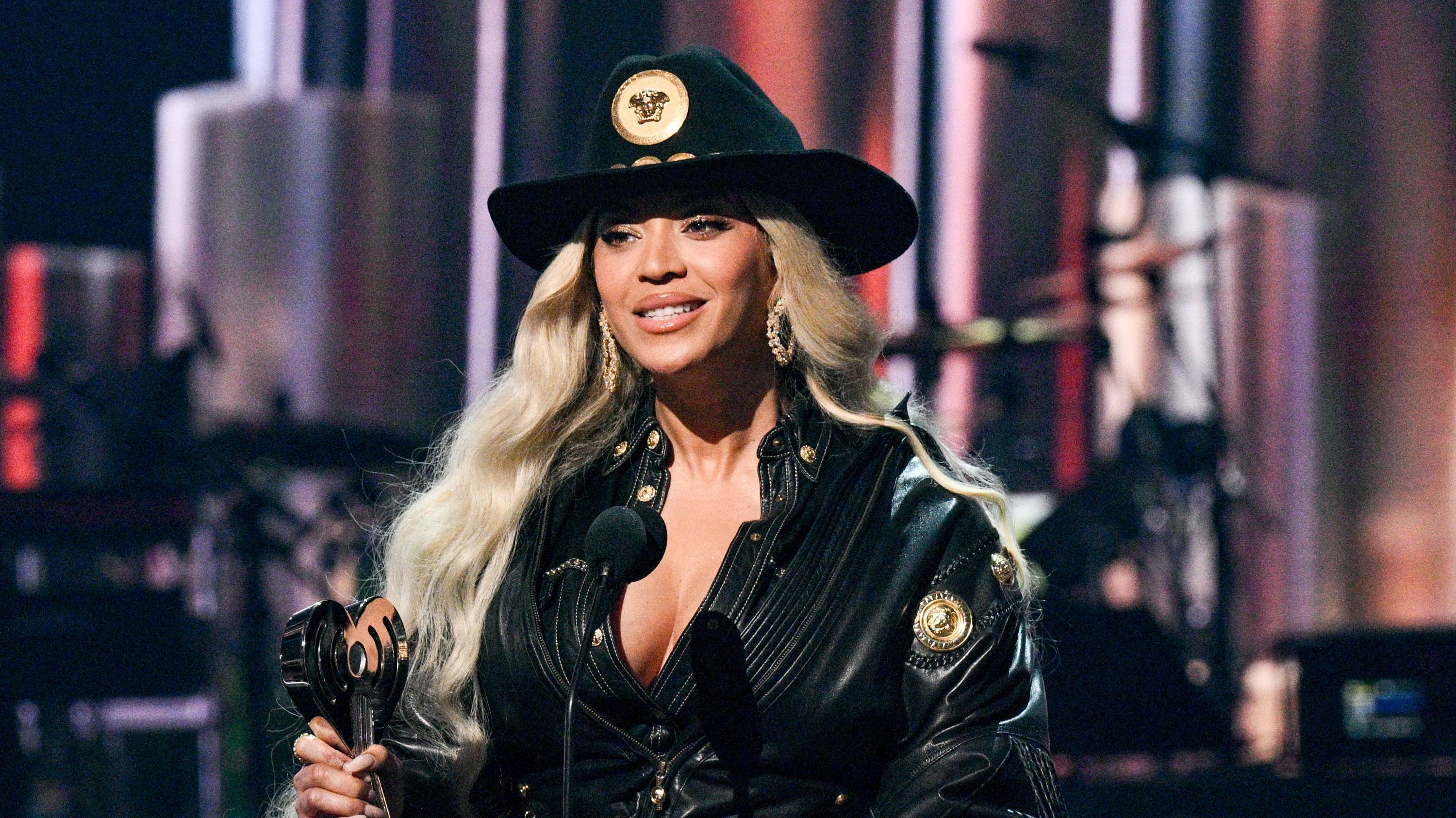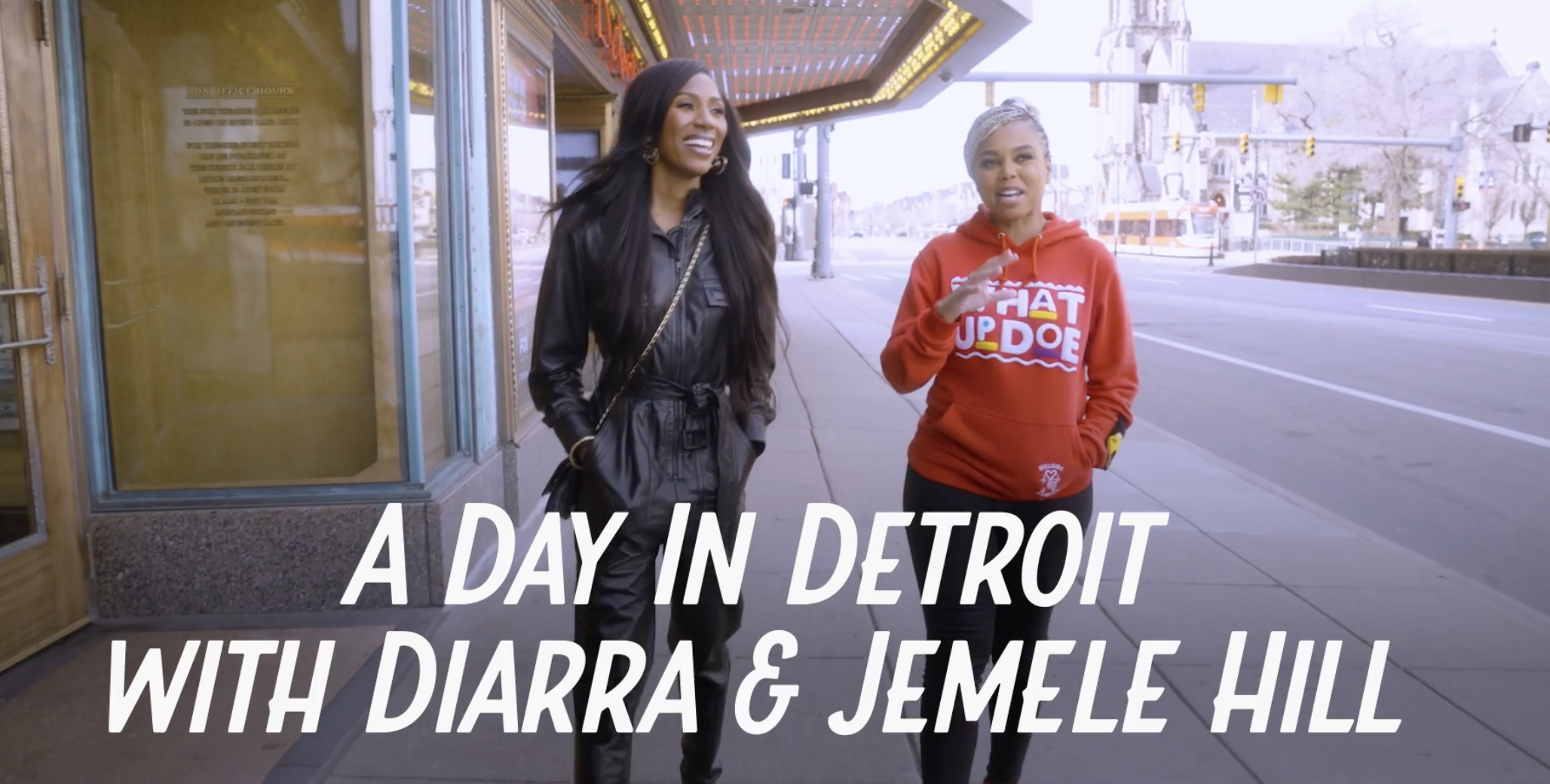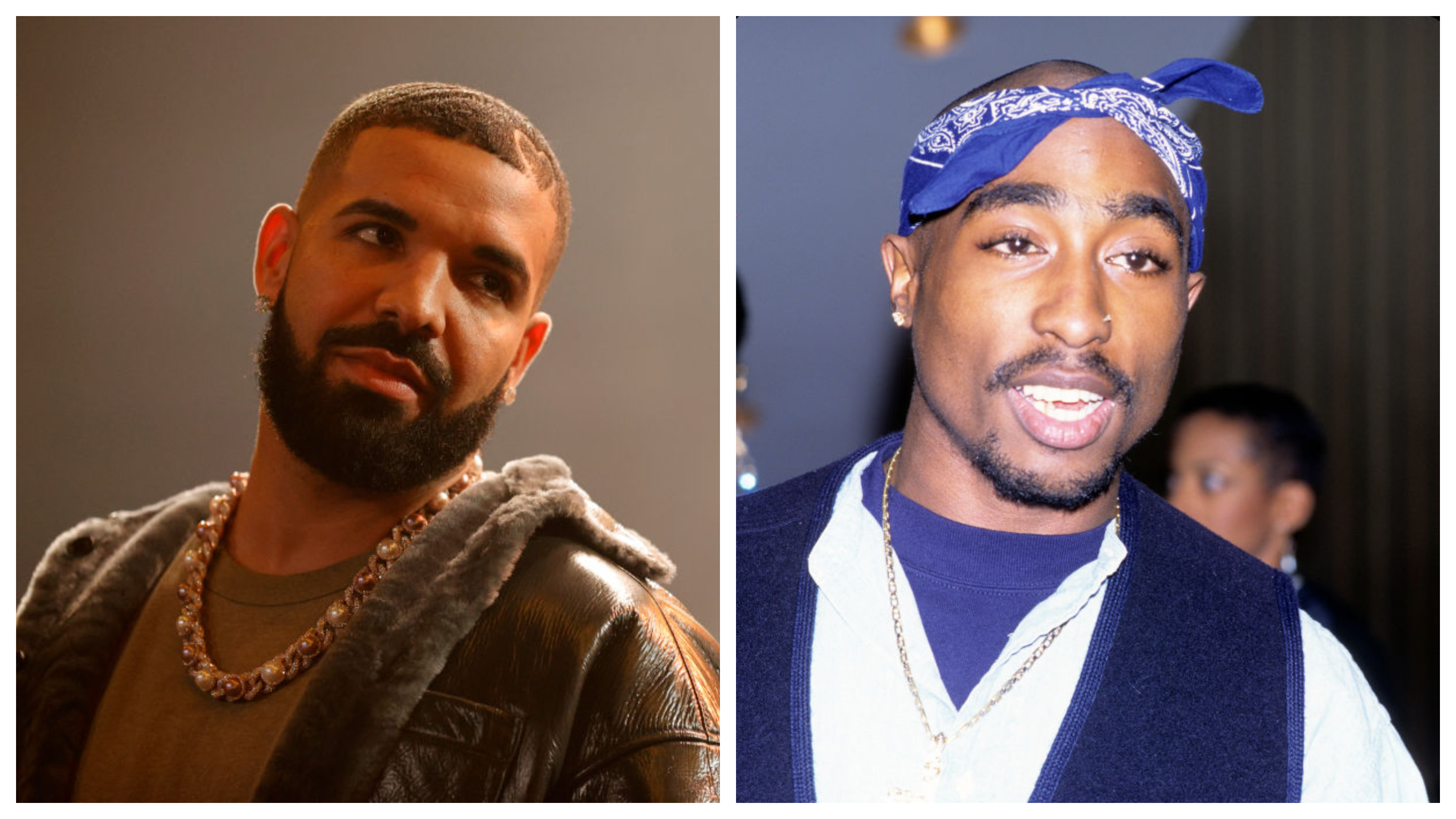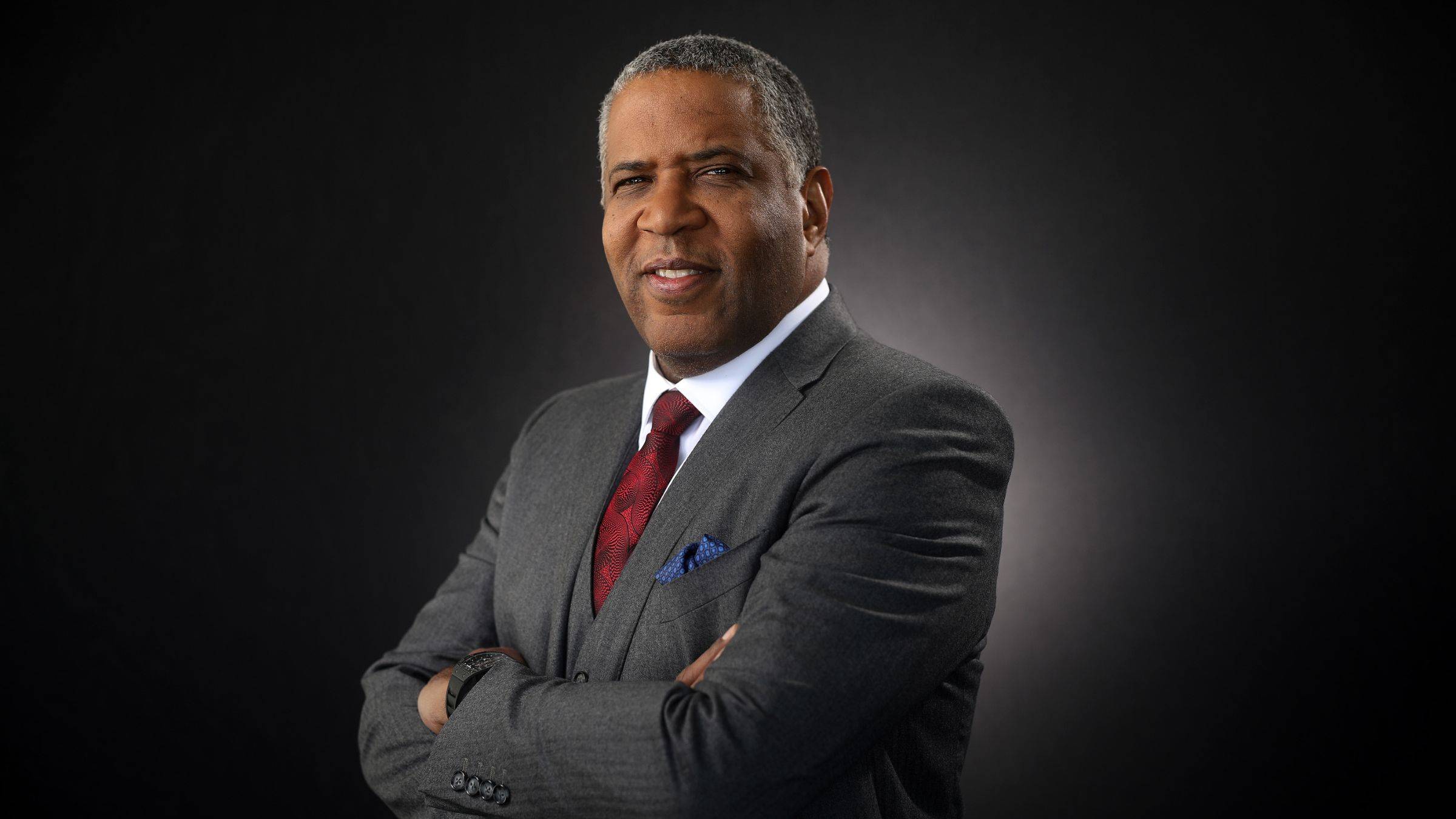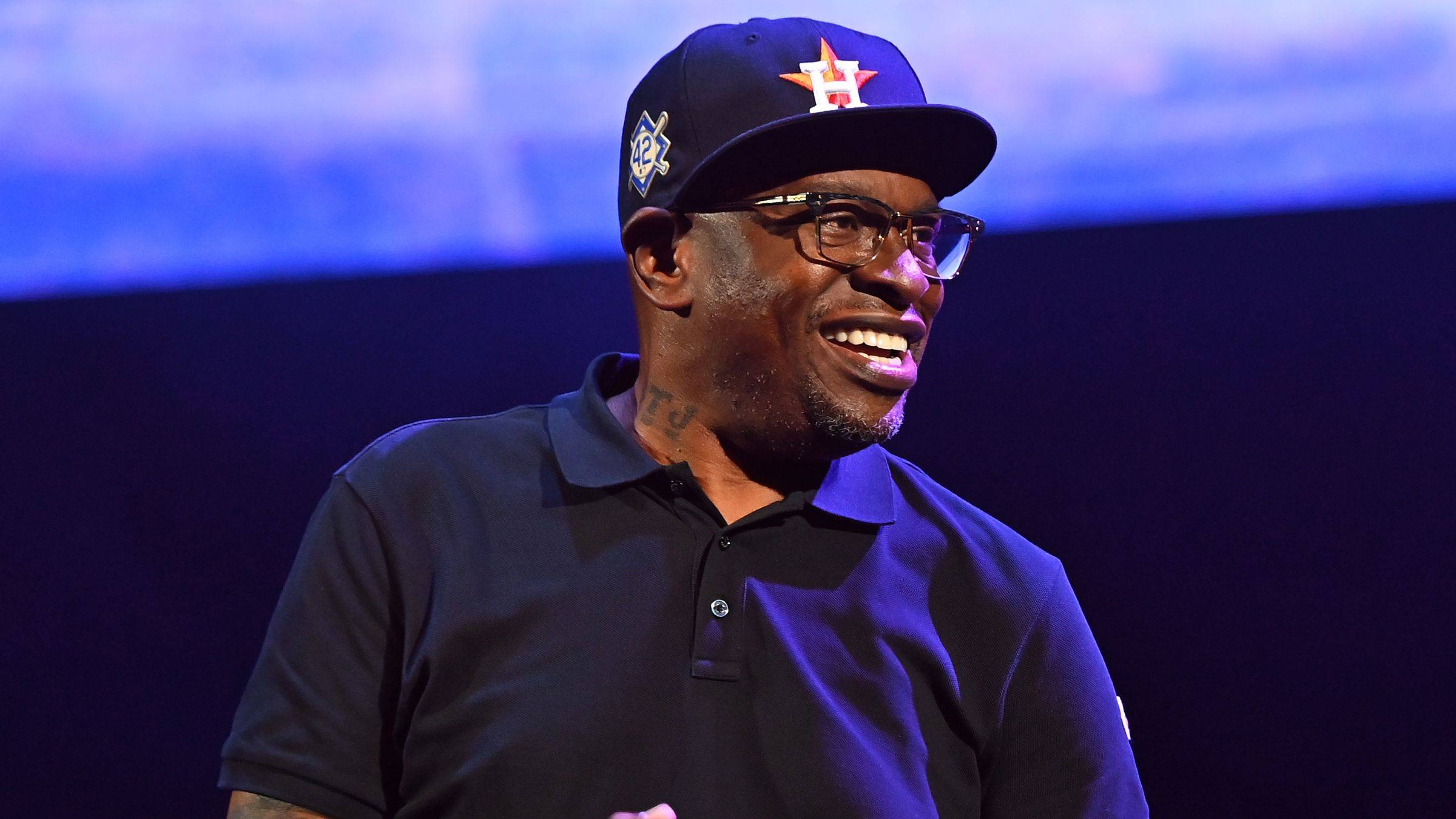With New York Legalization On The Horizon, Atlanta Pot Entrepreneurs Get Ahead Of The Curve
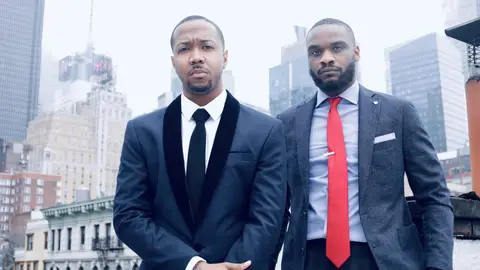
Just recently, New Jersey lawmakers won the votes needed to pass a weed legalization bill through the General Assembly, which reports say the Governor would have ushered into law. When Senate got their hands on it, the bill was ultimately withdrawn from the floor.
In New York, where a groundbreaking bill prohibiting employers from drug-testing their employees for marijuana was passed earlier this month, a budget deadline to help ensure a future where New Yorkers could reap the benefits of legal cannabis, was missed.
“The legislative session,” however, “ends in the middle of June. So we have several more months to engage with the legislature on this issue,” said Alphonso David, Counsel to the Governor and the Governor’s point person in legalization negotiations, according to Yahoo Finance.
With legalization on the horizon for the Tri-State area, Andrew Farrior, 30, and Ethan Jackson, 28, are a pair of Atlanta entrepreneurs with their eyes keen on the New York City market.
“We are trying to position ourselves early as a cannabis company in New York City that’s culturally and lifestyle driven,” explains Farrior, co-founder and CMO of Greenbox NYC, a combined monthly subscription and delivery service for cannabis. “We feel like there hasn’t really been any cannabis company that’s positioned themselves as ‘for people of color’ and one that benefits the most heavily affected areas.”
Jackson, the other co-founder and CEO of Greenbox, draws knowledge for the team’s modus operandi using the current industry’s flawed blueprint.
“The thing about every other state that has legalized that we have studied, once it becomes legal and they get all these licensed cultivators and distributors, there’s way too much weed and the price sinks—it plummets,” he says, breaking down what occurs commonly with growers who fail at marketing their product. “It damages growers because their profit margins suffer. We realized that a lot of these farms don’t understand how to market their product right. They don’t know where to go. They don’t actually understand how to brand.”
With marijuana becoming more and more appealing and legally ratified – thanks in part to the documented social acceptance of it by the hip-hop community and the black culture at large – Farrior and Jackson are working diligently to become the “Amazon” of cannabis, a national hub for consumers, distributors and growers with the Big Apple as a top priority, because it’s one of the busiest cities with some of the greatest movers and shakers, sitting on the precipice of legalizing weed.
“We are creating more leverage for ourselves, but we want to position ourselves where we can be that network or concierge for Black and minority founders,” Farrior adds. “Quarterly, we’re going to do investor meetings and conferences. If you have an idea, we can put you in front of a room of investors or advisors, people who can help develop your brand for you.”
With the entire marijuana industry still at an elementary point, Farrior and Jackson join BET at our headquarters to discuss the ins and outs of the pot industry, pointers for other black and brown entrepreneurs looking to venture the weed business, and just how Greenbox NYC works and who it works for.
BET: So, what is Green Box?
Andrew Farrior: We’re a monthly subscription box. For $99 a month, we deliver it to you. We are a [combined] subscription and delivery service model for cannabis. We’re branding early, pre-recreation, so we’re doing ancillary legal products right now like hemps, accessories [and] things like that. We can brand ourselves as a box, while a lot of people aren’t trying to infiltrate the market. We see value in that. We’re branding legally, early.
BET: And post legalization?
Andrew Farrior: With Green Box – this is post-legalization – what we talking about right now. For $99, we’ll deliver you a box of curated products. So that can be strains, pre-rolls, oils, or anything that we feel like is going to be beneficial to you—we’ll deliver it to you. You’ll go on the app and you’ll rate, review, and order more.
BET: Why New York City?
Andrew Farrior: We want to be your first point of contact in the Manhattan market for cannabis because we understand that New York is so congested and people don’t drive. We feel like people are so excited that cannabis is [becoming legal], nobody has worked to organize the buying process.
In the age of Amazon, Netflix and all these things that are custom-centric, weed is the only thing where you still have to get up and put your pants on to go buy. We’re trying to fix the issue that we’ve identified with Green Box.
BET: Who is your target audience?
Andrew Farrior: The thing about cannabis is everybody smokes it so 21 to 81, really. Because people have different uses for it. Some people are recreational. Like you said, some people are medicinal. Some people do it socially. We really want to figure out a way we can target everyone, but initially we want to be for people of color. Because we understand that once legalization rolls out in New York, it’s only going to be in Manhattan and it's only going to be on the Lower East Side. People in Canarsie or Brownsville aren’t going to be able to get dispensaries in [their] areas. They’re going to have to commute to here or Brooklyn. And that doesn’t benefit our areas.
Andrew Farrior: When I first moved to New York, I was in the projects. I was living in Canarsie. I know for a fact that when everybody wakes up, we have to come all the way here to go to work. We benefit this ecosystem [and] this economy and then we go back home because that’s the only place we can afford to live. I feel with Green Box – what we want to do with our model – some of the revenue that we generate, we redirect it to communities of color.
BET: But you’re based in Atlanta?
Andrew Farrior: We do nationwide products. As you’re aware, the cost of living in New York is unacceptable right now so [we are] pre-revenue, pre-investment as of right now. We’re rolling out our first box this month. We realize, that first of all, marketing in cannabis is terrible. If you just go to any brand, people are just raising hundreds of millions of dollars for these cannabis companies and their marketing isn't up to par. You’ll look on an account that has raised $50 million and it’s just weed memes or pictures of a plant. There’s nothing really where [a brand] is trying to insert themselves into their culture, lifestyle, into their day.
Ethan Jackson: Versus previous brands that we’re not going to name, I think it was more focused on the white side. Nobody but people of color, minorities – to me – those are the people in prison for the things that are now becoming legal. I think that’s our focus, cultural aspect, and marketing to every race versus one side like other brands have.
Andrew Farrior: And we understand as people of color, we decide what’s cool. People don’t really give hip-hop or rap culture credit, but they did a lot in bringing [weed] forth to the social…
BET: Setting trends.
Andrew Farrior: Right, like the social acceptance of weed. If you look at anybody like Snoop Dogg to Currency to Wiz Khalifa, they did just as much to legalize cannabis as whatever local legislator might’ve signed off on a bill because they did more for public sentiment to create support for that. We grew up understanding weed is okay and that’s because of Black culture. We just feel like we should have some type of voice or position in the market as well.
Ethan Jackson: We made weed cool.
BET: It's interesting because when some people think of the business of weed they think of growers, and I feel like that’s one of the stigmas. Can you talk about what it takes to run a business like yours?
Ethan Jackson: Great communication.
Andrew Farrior: Great communication and also, to be completely honest, it’s a different set of qualifications or requirements to run a business like our. So if you look at like the demographics of legal weed companies, only three out of 100 are owned by minorities or women combined. It’s a completely white, male dominated structure. So when we come in and don’t look like them, it’s harder to get funding [and] harder to get partnerships [or] advising. Even with our idea, we are developing further out earlier because we have to create leverage for ourselves to get the same respect in the space than what a less, developed predominantly white-funded company has.
BET: So where does someone who has interest in the weed business, outside of cultivation, even begin?
Andrew Farrior: I would say for one, generally you need a knowledge of any industry that you’re entering in. You have to understand how it works, how to monetize it, [and] how to retain people. But as a person of color, you have to understand it’s not going to be a fair process and that you’re going to have to prove yourselves a lot more before you get the same respect or get invited to the same conferences or get the same brand that wants to give you product.
Ethan Jackson: Personally, I feel you have to be very strategic on how you roll out everything from marketing to branding, to what you take a picture in to who you take a picture of to who takes that picture. It has to be strategically mapped [and] planned correctly because one false move, we’re back to the bottom. The same person of a different race can make the same mistake but they can afford it. [If] we mess up, it’s back to the drawing board. We have to revamp from the mistake that we made to try to come back.
Ethan Jackson: We’ve ran into that even speaking with different people on getting funding. It was like ‘Hey, you’ve got to look this way, speak this way, [and] make sure you’re this and that.’ We were only on the phone, there hasn’t been a face-to-face at that point. We ran into a lot of problems, pushback, and hesitance just from others assuming we were Black—not even actually knowing we were Black.
BET: Assumptions made over the phone?
Andrew Farrior: Right. In order to get into the industry you have to have a founder group. People don’t even take you seriously if you are a Black woman and you’ve founded it by yourself.
BET: Who else is involved in Greenbox, is it just you two?
Ethan Jackson: We do have a team of advisors, but it is just us.
BET: Explain the advisory board.
Andrew Farrior: So you have an advisory board—that’s one thing you have to really have. So let’s say you find an advisor, somebody who likes the idea and they’re experienced, and their name lends legitimacy to your company. They want equity also. It could be a quarter of a percent, a half a percent, but once you get into the business of raising a million dollars or $2 million, that little one percent then turns into $10,000, $20,000. So you have to be very mindful of who you give your equity to. That’s something people have to know and understand, how to divide your company, and what power you give people when you give equity in your company.
BET: Why the app and not a physical store?
Andrew Farrior: Knowledge is power. If you know more than the next guy, you have an advantage. People aren’t really following the New York or New Jersey legalization process everyday. We can speak to every legislator, every person in Senate, [and] every yes and no vote. Let’s say New Jersey right now is a lot more beneficial of a state because they have legal verbiage benefiting people of color, whereas New York doesn’t.
Right now if New York legalized, you would have to bid for a license. If you were a retail company like us, you would have to tell New York how much money you’re willing to pay for your license and the minimum is $10 million. The bid for your license to sell weed and open a dispensary is $10 million. But New York felt like it was too low because in California when they did that a couple years ago, it was $5 million. So New York thought ‘Ok, if California can charge $5 [million], New York City can charge $10 [million].’
The governor feels like we can do more so that price is automatically [charged] unless we ready to give up over half of our company. Whereas in New Jersey, it [is] written in [law] that three out of 10 retail licenses has to go to a minority. So if you’re a woman or Black—if you’re a black woman, that doubles your chances. New Jersey will give us the opportunity to have a physical retail location. We’d have a Green Box store where it makes our network a lot easier because we have a home store to operate out of and deliver from. New Jersey right now is very attractive for us.
BET: Because there you can install a physical store?
Andrew Farrior: Because we are able to be vertically integrated where we can house everything ourselves, buy our own product, operate our own store—all of that in-house. Whereas in New York, it’s going to be more like we have to be more of a facilitator where the app would work as a concierge between you and a local dispensary where we can give a dispensary and it says ‘Hey, this person wants to deliver here.’ We want to be like the Amazon of cannabis.
BET: Do you seek out the growers or do they seek you out?
Andrew Farrior: As of right now, we have to seek them. Once you identify a problem and start to work toward a solution, you have value. The thing about every other state that has legalized that we have studied, once it becomes legal and they get all these licensed cultivators and distributors, there’s way too much weed and the price sinks. It plummets. It damages growers because their profit margins suffer. We realized that a lot of these farms don’t understand how to market their product right. They don’t know where to go. They don’t actually understand how to brand.
Ethan Jackson: They have fields and fields of cannabis, but can’t sell it.
Andrew Farrior: They don’t have anyone to sell it to. They don’t know how to get into the Manhattan market. They don’t understand how to get into the Brooklyn market. They don’t understand how to have things like editorial coverage of their product. With Green Box, we want to serve as kind of a point of sale for you. We have two apps that we are developing: the consumer app that you use and the backend app.
We can buy it from you directly either wholesale or we’ll just distribute it for you for a revenue split. It’s like you have 600 pounds or whatever and you can’t sell it. We’ll put it in our box, you give us a certain amount [and] we’ll give out as a sample. We’ll share that data with you. We’ll let you know how many people liked it and how many people re-ordered it. Data is valuable [and] it's more valuable than anything right now. It’s another problem we’ve identified: once a state becomes legalized, nobody knows how to sell their stuff anymore.
BET: When you say you are going to buy someone’s product wholesale, is there someone doing the packaging or is that on you also?
Andrew Farrior: That’s in-house. You definitely have to have a sales force. You have to have staff. You have to have security. You have to make sure that the product is packaged correctly to were it doesn’t become stale.
Ethan Jackson: From bud-tenders to packaging, everything.
BET: And you don’t have that full staff yet?
Ethan Jackson: No.
Andrew Farrior: As of right now, we’re just having to show that the model works. That people will interact and engage with it, and continue with it. You can’t have a subscription service where there’s a lot of churn [and] people aren’t returning to your product month after month. It’s just too expensive. So, the first thing we’re doing next month with every box that we do, we have to bring attention to the box. You just saying you have product doesn’t really make people want it so you have to present it in a way that’s attractive to them.
Every month, we have a celebrity interview series where we put a celebrity in front of a box and they just go through every product that we have. That’s a benefit to the celebrity. That’s a benefit to us because it legitimizes us. And that’s a benefit to the brands in the box because they aren't great at marketing. Our email is full of people who are like ‘Hey, we want to partner with you guys for some marketing materials,’ i.e. your shit needs help. Next month, Deontay Wilder, the WBC heavyweight champion of the world, he has a fight in Brooklyn at the Barclays on May 17. He’s our first interview. Every brand that worked with us early, he’s literally going to sit and try it out on camera as he talks about his upcoming fight.
Ethan Jackson: We cannot include any cannabis or CBD products. But that is our very first celebrity interview.
BET: Have you considered bringing in a Black woman onto your business? How could that be a benefit to you?
Andrew Farrior: For a retail license, that would increase our chances of getting our retail license. But yes, we have, just because the most knowledgeable person that we’ve talked to in the space, especially in New York, has been a Black woman. Her name is Sirita Wright.
BET: Who is she?
Andrew Farrior: She has a company called Estrohaze. They’re kind of doing the same thing we’re doing. It’s three Black woman that founded it and they’re pretty much preparing themselves for once New York legalizes cannabis where they can do programs, conferences and anything that’s going to involve more people of color in trying to get some of this money that’s coming into cannabis. We had a call with her maybe two months ago and she gave us the shit. Everything that was wrong with our idea, she critiqued it. Everything.
She saved us a lot of money because those were mistakes we were about to pay to learn about. We’re definitely open to even a white co-founder. Anybody who pushes the idea forward, we’re totally open to it but we definitely want a female.
BET: What are the gems you want to offer to someone wants to follow in your footsteps?
Ethan Jackson: I would say stay consistent with whatever it is. Don’t alter your path because opportunity comes, and be open to change ‘cause that’s what we both had to learn.
Andrew Farrior: You gotta take what the market gives you.
Ethan Jackson: Even with your team, you have to be open with altering it but staying on your path. Like we said before, he may have an idea and it may sound good, and look good on paper but we got to stay with the brand and the goal. Anybody could come in here and say ‘I will give you $3 million for your idea but I want it this way.’ Are you going to take the money or turn down the opportunity? I would say stay with what you want your [brand] to be. Stay focused and stay consistent. It may not come in the timeframe that you actually want it but it’s going to come.
Andrew Farrior: I’d say have a purpose. Our generation, we like to be marketed differently than anyone before us. We’re not really going to support something that we feel isn’t helping people. If you look at Toms, you knew when you bought a shoe, it went to someone who didn't have shoes. Especially if you are a minority founded-company, you have an expectation and a responsibility.
Especially in cannabis that affected so many people who look like us. You can’t just make money and walk away. You can’t just have revenue for the sake of having revenue. I would say have a purpose with your idea and have experts around you. Be susceptible to feedback and advice because somebody has done it before and you just have to be lucky enough to get in front of them and absorb what they are telling you.
Ethan Jackson: They may have done it before but they may not have done it right. What worked for them may not have worked for you or what may not work or fail for them may go right for you because you have that mind of ‘Okay, I know what to do. I’m going to critique what you’ve messed up on and put my play in motion’.
Andrew Farrior: And finally – I will say we learned this the hard way – don’t be validated by investors. We thought coming into this once we get $50,000, half a million dollars or whatever, we thought some company or white person giving us money validated our idea when in actuality we were really selling ourselves out early. Because we still have to do the same amount of work but now it's guaranteed that they get some of the money also.
It’s just like in music industry. People just search for record deals. You want to get a deal so bad but if it gets to the point that you don’t even own your own music anymore, you don’t have control of your career anymore—you sold out too soon. Had you built yourself out, you would’ve had leverage and could’ve did it your own terms. That’s the same mindset you have to have going into cannabis. Keep as much leverage and equity and brand responsibility as possible.
BET: Is there a price tag on your company?
Andrew Farrior: Right now, our price point is $750,000 for 10 percent and that’s convertible debt. If we generate enough revenue, we have the right to buy that back or first right of refusal. You can’t just buy a piece of us and just go sell it. If you come up with some of kind deal to sell our equity, we can buy it back from you for that price.
BET: Going back to Andre’s point of purpose, would you consider giving jobs to those out of jail for petty crimes and trying to rehabilitate themselves?
Ethan Jackson: I would say yes. Personally, I feel like all the states that are legal now, how can you still hold the prisoners in prison for a charge? A lot of people are doing more jail time for misdemeanors or small cannabis charges than what some people are getting for rape and murder. Personally, I would like to give that second opportunity because when you come out, especially if you got a drug charge on your record, you can’t get a significant job to actually be able to afford a decent living.
Andrew Farrior: We actually had two people in New Jersey, two gentlemen, that have marijuana felony convictions that we’re going to employ also. Some of our first hires will be people like this.
Ethan Jackson: I feel like giving them opportunity – once we get later on down the line – to go to school. It doesn’t have to be cannabis-related. I think later on down the line it would be a great idea for us to give each employee the opportunity to go school into whatever field they want to, especially give a criminal significant [consideration]. A lot of people give jobs but it’s ‘I’m going to give you a job but you’re only going to make $30,000.’ A lot of people can’t live on $30-something. You still end up doing something illegally that gets you back in prison, so I feel like if we give more opportunity and a better style of living, you’ll see this turnaround.
